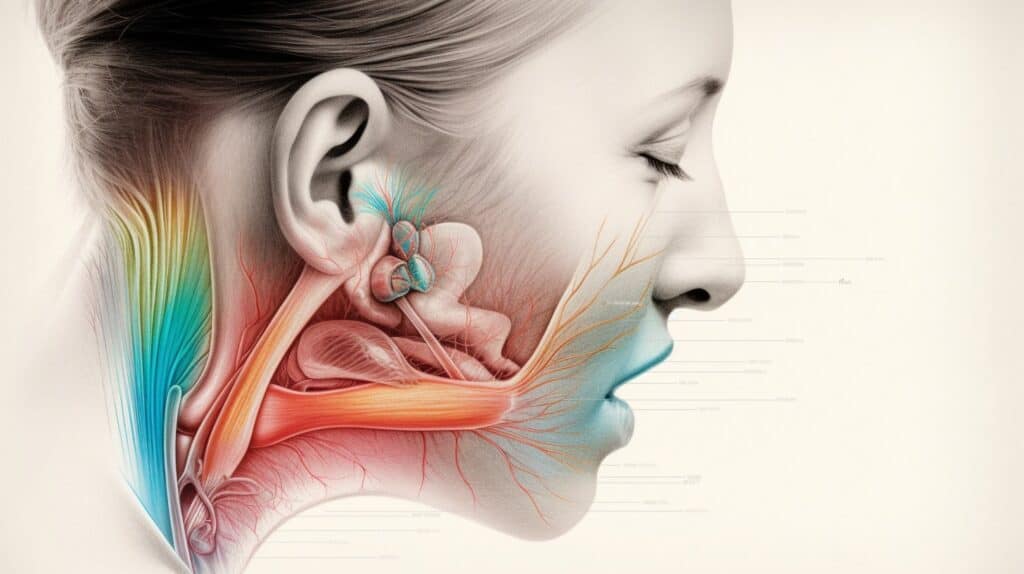Ear Ringing and Ear Pain: Your Ultimate Guide to Diagnosis and Treatment
- Get link
- X
- Other Apps
Table Of Contents

Introduction
Have you ever experienced that annoying, persistent ringing in your ears that seems to come out of nowhere? Or sudden ear pain that keeps bothering you throughout the day? These symptoms might not only be uncomfortable but also worrisome. So it’s essential to understand their causes, symptoms, and possible treatment options. In this article, we will delve deeper into the world of ear ringing and ear pain to bring you valuable insights that can help you address these issues and improve your overall well-being.
Causes of Ear Ringing and Ear Pain
Tinnitus
Tinnitus is the medical term for the ringing, buzzing, or hissing sound that you hear without any external source. This condition can be the result of a variety of factors, such as exposure to loud noises, ear injury, or an underlying health issue. For some people, tinnitus is a temporary inconvenience, while for others, it can be a chronic problem that significantly impacts their quality of life. Although tinnitus is not directly linked to ear pain, it’s essential to mention it when discussing ear ringing. Be sure to visit our website to learn more about the different types of tinnitus and their potential causes.
Ear Infections
One possible explanation for the simultaneous occurrence of ear ringing and ear pain is an ear infection. There are two main types of ear infections that can cause these symptoms: outer ear infections (otitis externa) and middle ear infections (otitis media). Outer ear infections often result from trapped water, leading to bacterial growth in the ear canal. In contrast, middle ear infections are usually caused by bacteria or viruses that have made their way from the upper respiratory tract into the middle ear.
Both types of infections can result in ear pain, swelling, and sometimes ringing. If you suspect an ear infection is behind your discomfort, make sure to consult a healthcare professional for appropriate diagnosis and treatment. They might recommend over-the-counter pain relievers or prescribe antibiotics to clear up the infection, which should alleviate both ear ringing and ear pain. For more information on ear infections and their relation to tinnitus, visit our page on ear infection pulsatile tinnitus.
- American Speech-Language-Hearing Association’s resources on tinnitus
- CDC report on hearing impairment and tinnitus
- World Health Organization’s factsheet on deafness and hearing loss
Other Causes
Apart from tinnitus and ear infections, several other factors can contribute to ear ringing and pain. Some of these causes include:
- Meniere’s disease: This chronic inner ear disorder affects balance and hearing, causing tinnitus and fluctuating hearing loss.
- Exposure to loud noises: Frequent exposure to loud sounds can lead to noise-induced hearing loss and persistent ear ringing.
- Impacted earwax: Excessive earwax buildup can cause discomfort and muffle sounds, resulting in ear ringing and pain.
- Sinus infections: Inflammation in the sinuses can result in pressure and discomfort in the ears.
- High blood pressure: Hypertension can lead to abnormal blood flow in the inner ear, causing pulsatile tinnitus and ear pain.
Recognizing Symptoms of Ear Ringing and Ear Pain
To effectively address your symptoms, it’s crucial to recognize and understand the signs and symptoms of ear pain and ringing. Some common symptoms include:
- Constant or intermittent ringing
- Changes in pitch and volume of the ringing
- Sharp or dull pain
- Pulsatile tinnitus, characterized by a rhythmic throbbing in the ear that coincides with the heartbeat
- Difficulty hearing, which can be a sign of an underlying condition or injury
Diagnosing Ear Ringing and Ear Pain
Physical Examination
If you’re experiencing ear ringing and pain, the first step is to consult a healthcare professional for an initial assessment. They will likely conduct a thorough physical examination, which may include inspecting your ears to check for signs of infection, inflammation, or abnormalities. This examination will help your healthcare provider identify possible causes of your symptoms and recommend appropriate next steps.
Audiology Tests
In addition to a physical examination, your healthcare provider may also recommend you undergo audiology tests. These hearing tests play a crucial role in diagnosing tinnitus and ear pain by measuring your ability to detect and recognize different sounds. An audiologist can assess your hearing thresholds, differentiate between age or noise-related hearing loss, and identify any potential issues that could be contributing to your symptoms. Visit our page on treatment for ear ringing for more information on audiology testing and its benefits.
Additional Tests
In some cases, further tests may be necessary to identify the root cause of ear ringing and pain. These tests can include imaging studies, such as CT scans or MRIs, to examine the structure of your ears and surrounding areas. Blood work may also be performed to check for systemic issues, such as autoimmune diseases, that could contribute to your symptoms.
Treatment Options for Ear Ringing and Ear Pain
Medical Treatment
Depending on the specific cause of your ear ringing and pain, various medical treatments can help alleviate your symptoms and address the underlying issues.
- Earwax removal: Impacted earwax can muffle sounds and create discomfort, leading to ear ringing and pain. A healthcare professional can safely remove the excess earwax using specialized tools or ear drops.
- Antibiotics for infection: If your ear pain and ringing are caused by a bacterial infection, your healthcare provider may prescribe antibiotics to help clear it up and alleviate your symptoms. Make sure to take the full course of antibiotics as directed to prevent any recurrence of the infection.
- Medication for underlying conditions: In some cases, treating the underlying health issue contributing to your ear ringing and pain may be necessary. This treatment may involve medication for conditions such as high blood pressure, Meniere’s disease, or sinus infections. Discuss your options with your healthcare provider to determine the most effective approach.
It’s crucial to consult a healthcare professional for an accurate diagnosis and appropriate treatment plan tailored to your individual needs. Explore our website for more information on various treatment options for ear ringing and ear pain.
Therapeutic Approaches
In addition to medical treatments, various therapeutic approaches can help manage ear ringing and ear pain, especially for chronic conditions like tinnitus. These approaches include:
-
Tinnitus retraining therapy (TRT): This technique combines counseling and sound therapy to help patients learn how to cope with their tinnitus. TRT aims to reduce the patient’s perception of tinnitus, ultimately making it less bothersome over time.
-
Sound therapy: Also known as acoustic therapy, it involves using external sounds to mask or distract from the ringing sensation associated with tinnitus. This can be achieved through devices like white noise machines, hearing aids, or sound generators.
-
Cognitive-behavioral therapy (CBT): A well-established psychological treatment that can help individuals manage their reactions to tinnitus by altering negative thought patterns and developing healthier coping strategies.
Lifestyle and Home Remedies
In addition to seeking medical treatments and therapeutic approaches, incorporating some lifestyle changes and home remedies can help manage ear ringing and pain. Some recommendations include:
-
Stress management: Stress can worsen symptoms of tinnitus and ear pain, so implementing relaxation techniques such as meditation, yoga, or deep breathing exercises may offer relief.
-
Avoiding loud noises: Protect your ears from loud sounds by wearing earplugs or earmuffs when exposed to loud environments or high noise levels.
-
Use of white noise machines: These devices can help mask the sound of tinnitus and promote relaxation, making it easier to sleep or concentrate.
Prevention Tips
To reduce the risk of developing ear pain and ringing problems, consider adopting some preventive measures. These can include:
- Regularly clean your ears to avoid excessive earwax buildup.
- Manage your stress levels through regular exercise, meditation, or engaging in hobbies and activities that you enjoy.
- Protect your ears from loud noises by using earplugs or noise-cancelling headphones during exposure to high-decibel environments.
- Schedule regular hearing check-ups to monitor your hearing health.
Conclusion
In summary, understanding the causes, symptoms, and treatment options for ear ringing and ear pain is vital for addressing these issues and improving overall quality of life. Remember that there are various ways to manage the problem, from medical treatments to therapeutic approaches and lifestyle modifications. If you suspect an underlying issue contributing to your symptoms, consult a healthcare professional for an accurate diagnosis and appropriate guidance. By staying informed and proactive about your hearing health, you can significantly enhance your well-being and enjoy a more peaceful daily life.
Ear Ringing And Ear Pain - Frequently Asked Questions (FAQ)
Common causes of ear ringing and ear pain include tinnitus, ear infections, Meniere’s disease, exposure to loud noises, impacted earwax, sinus infections, and high blood pressure. It is essential to determine the specific cause to access appropriate treatment options.
Treating ear ringing and ear pain depends on the underlying cause. Medical treatments, therapeutic approaches, and lifestyle modifications can help alleviate the symptoms. Medical treatments may include earwax removal, antibiotics, or medications for underlying conditions. Therapeutic approaches like tinnitus retraining therapy, sound therapy, or cognitive-behavioral therapy can also be helpful. Incorporating lifestyle changes and home remedies, such as stress management, avoiding loud noises, and using white noise machines, can help manage the symptoms.
It is possible to reduce the risk of developing ear pain and ringing problems by practicing preventive measures. These include regularly cleaning your ears, managing stress levels, protecting your ears from loud noises, and scheduling regular hearing check-ups. Adopting these habits can help maintain your hearing health and reduce the likelihood of experiencing ear ringing and pain.
If you experience persistent or worsening ear ringing and pain, it is essential to consult a healthcare professional for proper diagnosis and treatment. A healthcare provider can conduct a physical examination, audiology tests, and additional tests to determine the underlying cause of your symptoms and recommend appropriate treatment options based on your specific needs.
Tinnitus is the medical term for the ringing, buzzing, or hissing sound that you hear without any external source. Although tinnitus itself is not directly linked to ear pain, it is an essential factor to mention when discussing ear ringing. Ear infections, Meniere’s disease, or other underlying conditions can sometimes cause both ear ringing and pain. Therefore, understanding tinnitus and its potential causes is crucial for better managing ear ringing and pain.
The post Ear Ringing and Ear Pain: Your Ultimate Guide to Diagnosis and Treatment appeared first on Pulsatile Tinnitus Treatments News - Tinnitus Relief.
Related posts:
https://ift.tt/yGwx3rZ
#tinnitus #pusatiletinnitus #earringing #whatistinnitus #howtostoptinnitus
- Get link
- X
- Other Apps



Comments
Post a Comment